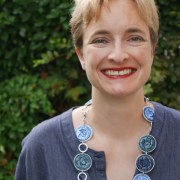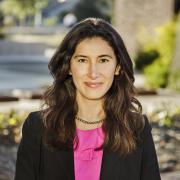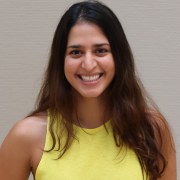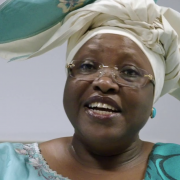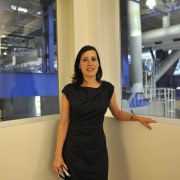Decolonising museums and science communication
The debate on how to decolonise our museums, collections and exhibitions is strong and ongoing. The question of how, if or when objects collected in colonial contexts should be returned to their countries of origin is just one of many. Are our exhibitions too Eurocentric? For exhibitions in formerly colonised countries, how do we include the scientific knowledge and concepts of today’s communities’ ancestors into our communication? What can co-creative projects with source communities or partners in formerly colonised countries look like? When we write and design exhibitions, how can we use language and graphics to reflect critique of power asymmetries and distance ourselves from hegemonic thinking?
This session includes presentations to showcase specific projects and involves you, the audience with small-group dialogue and a fishbowl discussion.
Facilitator
Curator Text and Language
Staatliche Museen zu Berlin – Preußischer Kulturbesitz
San Francisco
United States
Session speakers
The core theme of the Neanderthal Museum, Human Evolution, points to humanity as a diverse community with a diverse genetic mosaic that is subject to constant change. So far our mediation has taken a Eurocentric perspective. We have initiated a process of change in order to develop a common attitude towards opening the house to a broader point of view: from the visual language of our advertisements to the exhibition and program planning, we are gradually approaching this goal.
Researcher & Community Engagement Coordinator
Royal Netherlands Institute of Southeast Asian and Caribbean Studiesl
In 2019, 12 local adaptations of the international exhibition Caribbean Ties opened across the Caribbean and Europe. Local partners collaborated extensively to develop a common story about indigenous Caribbean heritage based on scientific research, that is presented in 6 languages and adapted for locally relevant narratives. This presentation examines how co-creation can shift the perspective from which we tell stories and contribute to decolonisation practices in exhibition development.
New Laguna, New Mexico
United States
Shelly is an expert in indigenous evaluation methods and science education from the Native perspective; she is Laguna Pueblo from New Mexico. Shelly’s work looks at the area of world views in science education, primarily focusing on indigenous science. She works with elders from her community to conduct indigenous youth cultural exchanges.
African Gong- the Pan-African Network for the Popularisation of Science & Technology, and Science Communication
Elizabeth will talk about her involvement in European museums in developing transformative and inclusive counter-narratives around artifacts ‘taken from’ Africa, showing evidence of early scientific advancement in the parts of the world where they originate. Such counter-narratives have been shown to impact greatly on diverse audiences, particularly ethnic minority youth, in terms of knowing that their 'peoples' and heritage have contributed immensely to scientific advancement across the world.
International Affairs Officer
Universcience will take part in the cultural season "Africa 2020" announced by French President Emmanuel Macron, which will be organized in France from June to December 2020. The aim of this project is to shed a new light on Africa and its innovations and understand the world from an African perspective. Participating in this oustanding "season" leads us at Universcience to change our own perspective, avoid received ideas (with upstream preparation with researchers) and co-create projects and events with our African partners.
Manchester
United Kingdom
Esme will talk about how the Manchester Museum’s repatriation work sits within a broader context of decolonising and indigenising their collections. This includes significant and ongoing co-curation with diaspora communities, new equitable partnerships with museums in the global south (the museum recently co-curated an exhibition with the Partition Museum in Amritsar, India), and new work and commissioning focused on possibility and storymaking/future thinking.
dr, Associate Professor, Head of the Museum Pedagogy Laboratory
Department of Pedagogy, Ivan Franko National University of Lviv, Ukraine
Oleksiy will analyse various approaches to overcome the display of a prevailing view of the past in museums in Ukraine. In the context of postcolonial views on world history, he will examine modern educational and cultural practices in museums from the standpoint of multiculturalism, Eurocentrism, and the participation of various social groups. The report will provide examples of manipulating historical memory, changing perspectives of history, and overcoming hegemonic thinking.

